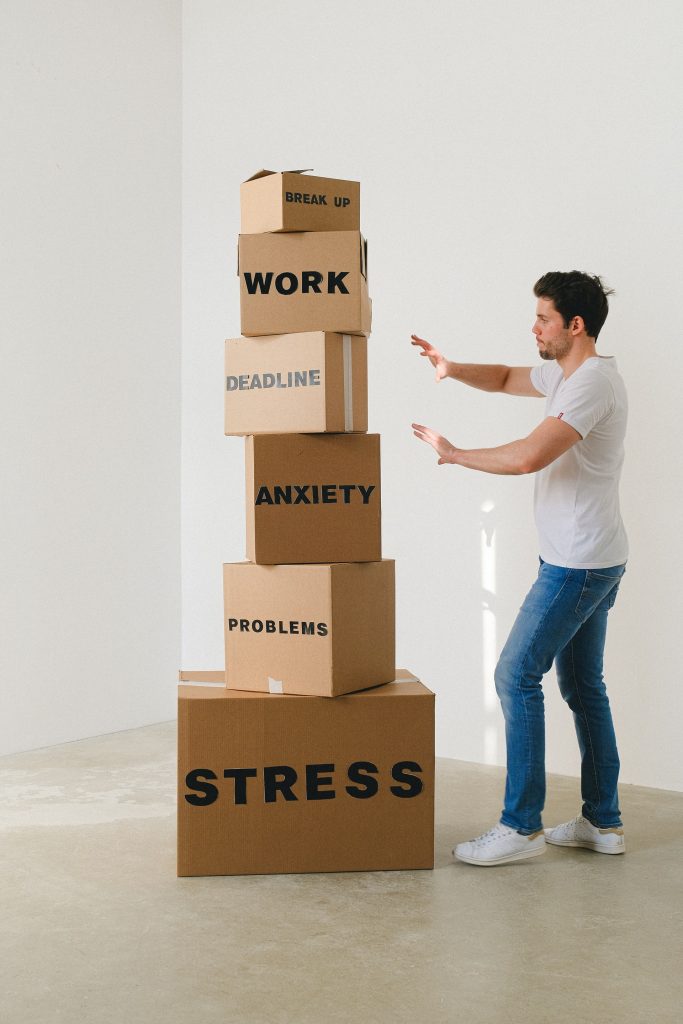Not Fully Showing Up for Self and Others

Are you the friend that’s always late to dinner? Do you tend to cancel or not show up to appointments and commitments at the last minute? Or is it hard for you to even make appointments and commitments in the first place?
For some of us, being on time and following through on commitments can be incredibly difficult. When we find ourselves unable to show up in a consistent manner, whether to appointments, fulfilling duties, or even hanging out with friends - this behavior may not seem purposeful.
In fact, many of us who mitigate these issues are continually stressed and feeling guilty about always being late or cancelling. There are also those who are so used to being late or not fully showing up - that it doesn’t even bother us anymore; that’s just “who we are.”
If you are someone who constantly shows up late, cancels, or doesn’t follow through - it is important to think through the functioning and reasoning behind this behavior.
This inconsistency can not only be damaging to our relationships with others, but to our relationship with ourselves.
It is easy to get caught in this cycle - and it can feel impossible to get out of. Below we’ll discuss some of the reasons why showing up is so difficult for some of us - and some ways to think through and begin to manage these patterns.

Procrastination and Lack of Time Management
Procrastination is often the first issue people think of when they think of lateness and a lack of time management. In previous posts, we have discussed some of the reasons why we might procrastinate, whether it’s because we’re perfectionists, dissatisfied with what we’re doing, or burnt out. Procrastination often leads us to delay things to the last minute.
In cases like this, there may be a need for honesty with ourselves surrounding what we need in order to successfully complete something (or to show up to something on time). For example, if you are always late to work, you may need to give yourself a “false” time of when you need to leave the house, in order to actually leave on time. Or, if you know a task is going to take you a certain amount of time, carve out that time to do it before it gets to be too late.
However, even in cases where it seems like we just really need to work on our scheduling and time management, there is likely some deeper reasoning behind our lateness. But time management and dealing with patterns of procrastination is an important start in handling inconsistency - and can only help when we start to deal with the deeper levels of these patterns.
It is also important to remember that time management is not only important in our relationships with others, but with ourselves as well. Healthy time management skills help us to maintain the commitments we make to ourselves, such as working out, scheduling in break time, knowing when you will be too tired to work, etc.
Often, when we are struggling with maintaining timeliness in our relationships and commitments to others, the commitments we make to ourselves fall to the bottom of our list of priorities. It is easier to “ditch” ourselves than someone else. In examining these patterns, we help not only those around us, but ourselves as well.
By dealing with our procrastinating and lack of time management, we might begin to see why these stressors activate lateness and inconsistency for us - because these patterns are not inherent results of procrastinating. There are many people who lack time management or procrastinate that are not consistently late; so, why does it show up for some of us? This is an interesting question for each of us to contemplate, and the key to breaking these patterns.

Lack of Communication
When we feel like we are falling behind or just can’t seem to show up, it can feel difficult to deal with the situation if we lack communication skills.
For example, let’s say the problem starts due to things like procrastination, lack of time or energy management, etc. You have a commitment, such as a doctor appointment or a birthday party - that you said you would show up to. You end up overfilling your day and really don’t feel up to going. You want to call to cancel and apologize, but you’re just not sure what to say - and so you end up not calling at all.
Whether or not we feel justified in a situation like this (or we feel horrible about it), dealing with commitments in this way shows a lack of willingness to communicate or a lack of communication skills. By not communicating with the people around us, especially when we make a promise to them, we risk hurting them, damaging our relationships with them, and future opportunities in connection to them.
You might be able to play off not showing up one time as a simple mistake, but for those of us who constantly struggle to manage our energy and show up, it likely won’t be the only time we didn’t show up. This can lead to people not trusting us, labeling us as inconsistent or unreliable, and even people giving up on us.
However, this does not need to be the result of our inconsistency. While in an ideal world, we might just magically begin to manage our energy excellently and show up to everything on time and prove everyone wrong - this is pretty unlikely. What we can do is work on better communicating what you are dealing with to others. This doesn’t mean making excuses either; people often see right through your excuses anyway. It means being open and honest about why you are not showing up.
This is a lot easier said than done, especially for those of us who struggle with communicating our feelings. But if this is a consistent issue for us, it is important to be able to talk to others about it while we are working on becoming better at managing our energy - so that people don’t give up on us in the meantime.
So, if you really don’t feel up to going to that birthday party, but you really care about the person who invited you, reach out to them and let them know as soon as possible that you can’t make it - and tell them why.
Then make a date to make it up to them (but you have to show up to that haha). It is also really important to differentiate between feeling genuinely unable to show up - and simply not wanting to show up.
If you hate the person who invited you to the birthday party, of course you won’t want to show up. But you might still feel bad since you said that you would. Then the important question to ask becomes, “Why make a commitment to show up to something that you didn’t want to show up for in the first place?”

Lack of Clarity and Need to Reassess
So, why make a commitment to show up to something you don’t want to show up for? We may think, “I’m always late, it’s nothing personal.” But this often has to do with not managing how much energy we need to show up for everything we’re committed to - as well as the feelings we have around our commitments. Basically, it does tend to be personal.
It’s hard to admit when we might need to reassess and make changes to our commitments. But it’s something incredibly important to consider, in order to break these patterns.
When we have a lack of clarity around our commitments, this can show up in several ways. For one, you might find yourself overcommitted and burnt out. This likely means we have a lack of clarity around what is most important to us. Or we overcommit because we show up so inconsistently - that we want to have options for when we do have the energy to show up and follow through.
Another way this lack of clarity shows up is in showing up to things we don’t necessarily want to do. It is even possible that these are the only things we’re late for - even if we think of ourselves as generally late people. Maybe you’re always late to work but never late to your book club - or you’re always on time when going out with friends but never when you’re having dinner with your family. At this point, you might want to evaluate why that is. What is it about particular commitments that might make you late or not want to go? Is there something you can adjust about the situation?
In these cases, it’s really important to sit down and reassess your priorities and commitments. If you are consistently late to a specific activity, especially one where others rely on you to show up - save your energy (and the energy of the others involved) by removing that commitment from your life. It is not fair to ourselves (or to others) - to not follow through when we are the ones that need to reassess things.
This can also help you see what is really important to you - things that might be getting swept aside, due to the fact that you’re expending energy on other things. For example, maybe there is a pottery class that you would love to go to, or you have been wanting to start learning an instrument - but you have so many other commitments where other people are depending on you that you don’t get to put in the time to practice that skill that you want to develop. By realizing this, we can start to make meaningful commitments, rather than obligatory ones - and we will likely be naturally motivated to show up to these things more consistently and on time.

CONCLUSION: Showing Up for Self and Others
While there are many reasons why we might show up inconsistently, all of these reasons are ultimately a reflection of the need to manage our energy and reassess our commitments. Time management, energy management, reassessment of priorities, and communication skills - are ALL important tools on this journey.
Showing up can be incredibly difficult, but it is important to follow through on our agreements. Ultimately, we cannot control or predict how our actions might impact others’ impressions and their respect for us. But we live in a world based on relationships with others. Therefore, it is important to be aware of where we tend to fall short in our responsibilities - in order to maintain our relationships and show respect to the people in our lives.
Similarly, we must show up for and respect ourselves - in order to live our lives healthily, happily, and to the fullest. If we spend all of our time procrastinating, running late, and doing things we don’t want to do - we are hurting ourselves and our chances to fulfill our potential.
The first thing we can work towards is maintaining a better awareness of where our energy and focus is going, so that we can make and honor commitments without a fear of falling behind.
Start by asking yourself these questions:
- What type of commitments am I showing up late to (or not showing up for at all)?
- Are these commitments ones that add to my life?
- If I am not showing up for commitments that add to my life, why? Is it because I need to work on my time management, my energy management, and/or my communication skills? What do I need to adjust in order to show up for the things and people that contribute to my life?
- If I am not showing up for commitments that do not add to my life, that makes sense. But why do I have those commitments? Is it out of obligation? Is there a way that I can take these commitments out of my life so that I have more time and energy for the things that I enjoy? If I cannot get rid of these commitments, is there a way to adjust the situation or expectations involved in order for this commitment to start adding to my life again?
- What do I need to adjust in order to show up for and follow through on my agreements?
